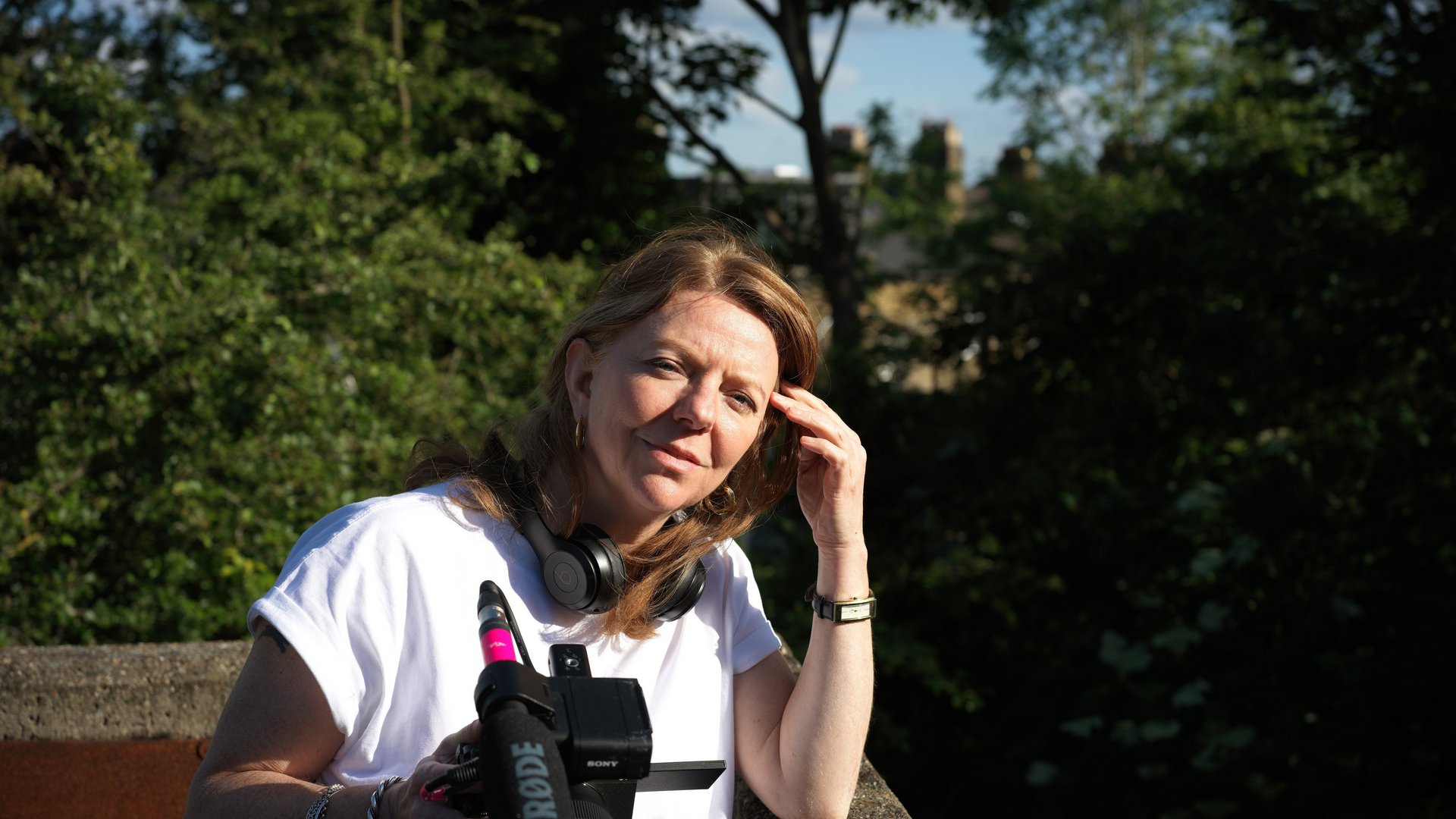
© Polly Braden

© Polly Braden
How do we confront fear, disinformation, and extremist manipulation? Director Havana Marking shares the story behind a bold and timely investigation into the fragile state of democracy.
Very often with my films I'm travelling the world looking for the stories behind the headlines. I filmed in Afghanistan and the Balkans and Asia. What I realised a few years ago was that the front line for democracy and the battle for democracy is happening in the West. And I wanted to make a film in the UK that was reflecting on that
It turned out that the story then expanded to Europe first of all and we uncovered a far right network that was across Europe. But then also to America where the funding was coming from. So it started as a UK project and then it went global. But it seemed to be the most important story right now in the West.
So we follow an organisation, where a couple of their journalists go undercover and infiltrate various far right groups. Both street level but also kind of elite intellectual level who have million dollar funding. It was scary both in terms of physical threats – What if people discover that we were filming? What if people discover the journalist? But it's also scary legally. I mean, we're talking about Silicon Valley billionaires and they have a lot of money for the lawyers. So we had to make sure that our journalism was watertight and that our security protocols were equally as thought through and we were prepared for those situations. So we put a lot of time and effort into making sure we were all safe as a team. We've all done training. The undercover guys are very experienced journalists. So we kind of had our bases covered.
There were lots of moments that felt risky and there were lots of moments that felt dangerous. But we never felt like we should stop filming.
What was actually happening to us were other people telling us we had to stop, or at least in terms of getting the story out. So we had trouble getting the film shown in cinemas because people thought it would be too dangerous.
Ultimately, we're all safe. The journalist is safe. But we have put lots of protocols in place for that to happen.
I was very surprised to discover how organised, how efficient, how well funded the far right networks are. They are probably a decade ahead in terms of their understanding of technology, their understanding of social media and how to play the platforms, how to get their information or their disinformation, how to get that out there. They embrace cryptocurrency, they embrace all the new platforms in a way that we don't understand.
So that was a big and terrifying thing to realise.
I mean, to me, the far rights, the rise and rise of the far right, there's, I mean, it's a perfect storm right now. But one of the fundamentals of why people are starting to follow them is the economics. When people are poor, when people are struggling, when capitalism is not delivering what it used to deliver, then people are looking for alternatives. People are frightened because they genuinely don't know how to feed their family. So a simple answer to a complex problem becomes attractive.
And it's pretty, you know, resorting to racism, resorting to anti-immigration, resorting to all the general fascist ideals. Those things are easy to manipulate when you've got people who are struggling economically. Ultimately, capitalism is not working for a lot of people.
So we tried very hard in our film to show compassion and understanding for, not for the far right, but for the people who are influenced by the far right. For the people who are scared and who are looking for simple answers. We are not condemning people for believing what they believe. We are condemning the people who are manipulating them.
I think if documentaries can try and bridge those gaps to try and make people understand not just what's wrong, but also why things are wrong and why people are maybe going believing things that are not true anymore.
That is an amazingly important role and that documentary has a huge role to play in that, trying to understand where we're all coming from.
Tough one, I mean, it's a really good question. The tech platforms have been allowed to disregard the law and disregard the kind of principles of the law. Like we've been too slow to bring the laws in to regulate and to not control speech at all, but just to ensure that the speech that is given is truthful and honest and not encouraging hate or breakdown of societies. We have been too slow or, to put it another way, they have been too fast and we have not been able to catch up. And it's reached a point where our governments are now almost in fool to them and they're too scared of cracking down because it might lose them an election.
We've got to find the courage to do that. We've got to find the courage to work out a way where both freedom of speech and community cohesion and truth can exist on the same platforms. And that's a difficult thing to find.
Well, I've just met a director called Friedrich Moser and I really really want to see his film (‘How To Build a Truth Engine’. I'm also looking forward to seeing other films, meeting other filmmakers and seeing other brilliant work. Can’t wait!